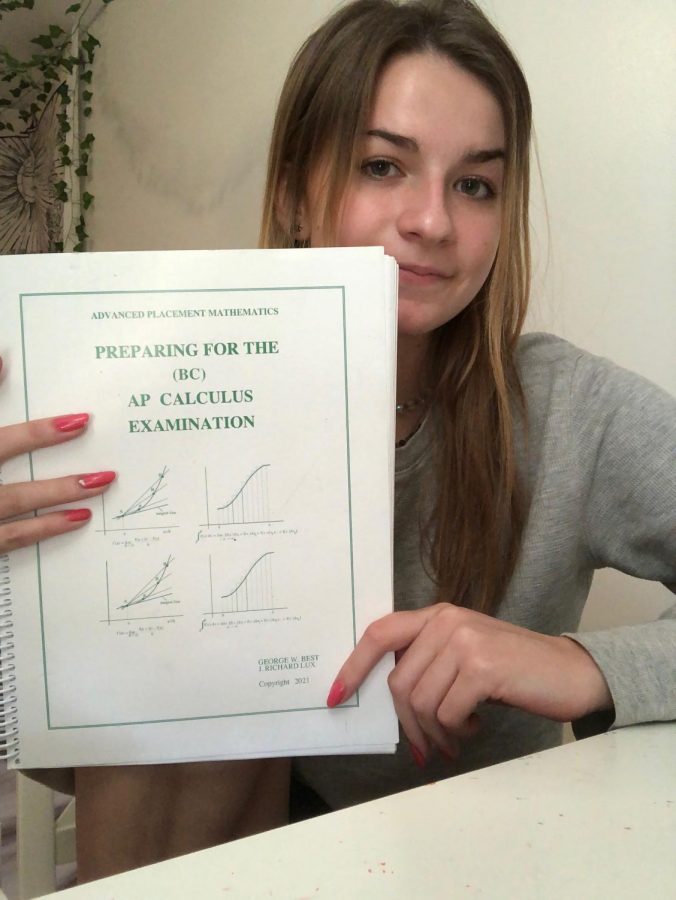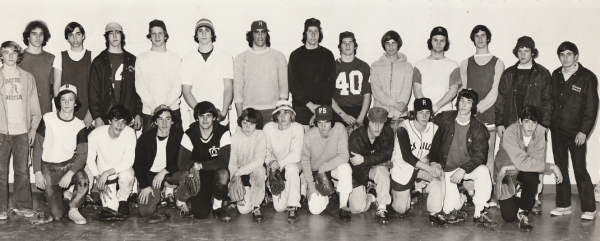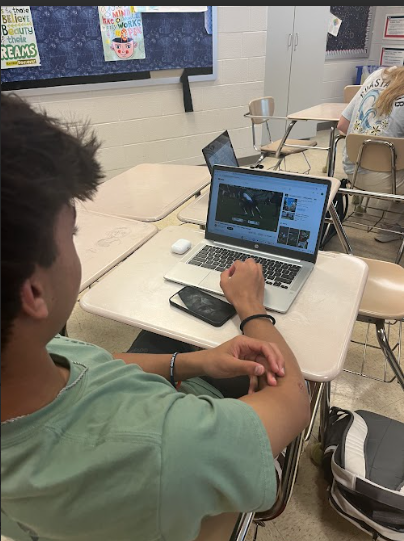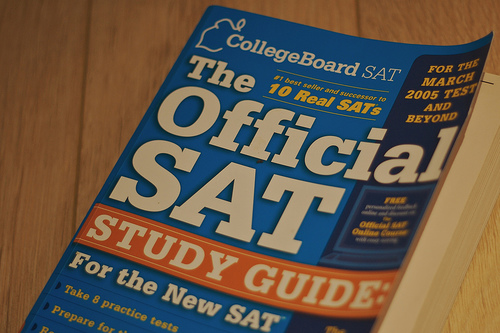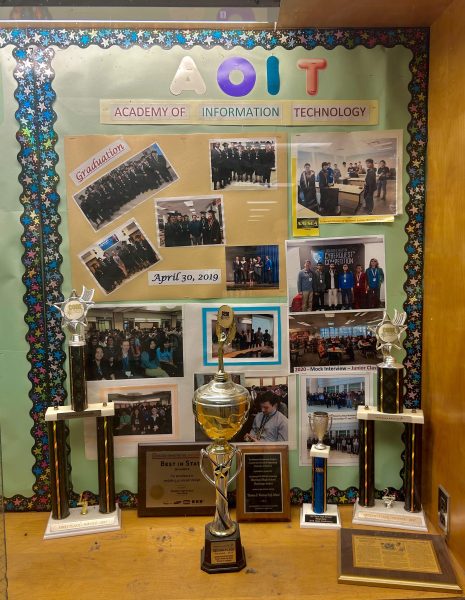Your guide to acing AP exams
Photo courtesy Charlotte Christovich
Junior Charlotte Christovich studies for her AP BC Calculus exam with the help of her review booklet.
The sun is shining, the birds are chirping and the flowers are blooming. Spring is finally here, but the change in weather also means that AP Exams are right around the corner.
To accommodate the challenges that came with school this year due to the pandemic, almost all AP tests will be online with the exception of AP Chinese Language and Culture, AP French Language and Culture, AP Music Theory, AP Spanish Language and Culture and AP Spanish Literature and Culture. Even if it’s not your first time taking an AP Exam, taking the full test online is uncharted territory for all students.
The first step to preparing for your exam is to educate yourself on what the layout will look like. Depending on your class, the test can include multiple choice, essays, short answer responses and other response formats. The format of all the exams can be found on the College Board website. Knowing the type of questions that will be asked on your exam is a critical step in studying for the exam.
Educational resources can help you review the needed material for the exam. AP Classroom, a source supplied by the College Board, is filled with useful tools and practice questions. The College Board also has review videos on Youtube that are posted every year leading up to the test. Other helpful studying tools include websites like Khan Academy and review guides like Heimler’s History on Youtube. It is often beneficial to purchase a review book specifically for your subject online, or even borrow one from a friend who already took the class. “My favorite way to study is by listening to review podcasts because it is enjoyable and I can study while I do other activities,” sophomore Carli Katz said.
Although going over such a large amount of information can be tedious, switching up your studying methods can keep you motivated. From traditional ways like practice essays, to unique methods such as creating your own trivia game, there are endless methods to prevent yourself from getting burnt out. “I’ve taken mostly social studies exams so I like to reread the review book like a story, which helps me remember it,” senior Laura See said.
I like to make summary sheets for each individual unit or concept covered in the class so it’s easier to manage.
— Charlotte Christovich
Managing stress is also a huge part of the studying process. It can be extremely daunting and overwhelming to review and remember an entire year’s worth of information. “To keep the stress down I think it is important to stay organized and start studying early, making sure that you have time to review all the information you’ve learned this year. I like to make summary sheets for each individual unit or concept covered in the class so it’s easier to manage,” junior Charlotte Christovich.
To prepare for the virtual aspect of the exam, make sure to designate a quiet testing space with a stable internet connection and little distractions. Keep everything you need within reaching distance, and set anything that might distract you outside of the room. “The main difference I’ve noticed between online and in-person exams is the environment that you’re taking the test in. At home you can adjust your testing space to make sure it is comfortable and will help you be as successful as possible,” Christovich said.
On the big day, make sure to reserve a chunk of time to do a relaxing activity like meditating or exercising. Calming your nerves, eating a big nutritious breakfast and getting a good night of sleep is just as important as knowing the information. You got this, Patriots.
Your donation will support the student journalists of Thomas S. Wootton High School. Your contribution will allow us to purchase equipment and cover our annual website hosting costs.
Senior Mandy Schoen is the online editor-in-chief in her third year on the Common Sense staff. In her free time, she enjoys playing sports, hiking,...


